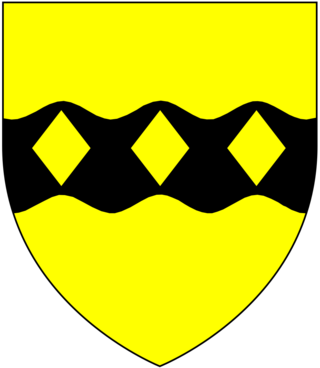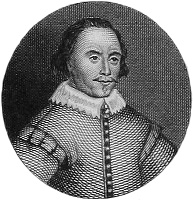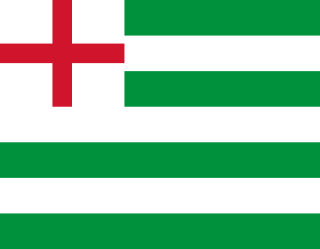Edward Calver (fl. 1649) was an English poet, said to be a lay Puritan. Little is recorded of his life.

Edward Calver (fl. 1649) was an English poet, said to be a lay Puritan. Little is recorded of his life.

Calver's works include:

John Bramhall, DD was an Archbishop of Armagh, and an Anglican theologian and apologist. He was a noted controversialist who doggedly defended the English Church from both Puritan and Roman Catholic accusations, as well as the materialism of Thomas Hobbes.

Edward Reynolds was a bishop of Norwich in the Church of England and an author. He was born in Holyrood parish in Southampton, the son of Augustine (Austin) Reynolds, one of the customers of the city, and his wife, Bridget.
Lazarus Seaman, was an English clergyman, supporter in the Westminster Assembly of the Presbyterian party, intruded Master of Peterhouse, Cambridge, and nonconformist minister.

Arthur Duck, Doctor of Civil Law (LL.D.) was an English lawyer, author and Member of Parliament.

George Glover was an English engraver, working in the reign (1625–1649) of Charles I. He mainly worked for London publishers, including Robert Peake, Thomas Banks, John Hinde and Peter Stent.

Scrope Howe, 1st Viscount Howe of Langar Hall, Nottinghamshire, was an English politician. He was the Member of Parliament (MP) for Nottinghamshire from 1673 to 1685 and January 1689 to 1691, and from 1710 to 1713.
Giles Collier (1622–1678), was an English divine.
William Hyde (1597–1651) was an English Roman Catholic convert and priest, presumed to be of Dutch or Flemish background, who became President of the English College, Douai.

John Bailey or Baily (1644–1697) was an English dissenting minister, later in life in New England.

Peter Vanderbank or Vandrebanc (1649–1697) was a French-English engraver.
Edward Gee (1613–1660) of Eccleston was an English Presbyterian minister, active against the government in the late 1640s.
Richard Elton, was an English military writer.
Edward Barber, was an English Baptist minister.
Robert Baron was an English poet and dramatist. He was a very successful plagiarist, his thefts passing unrecognised for more than a century after his death.
William Watts (c.1590–1649) was an English cleric and author. He was Rector of St Alban, Wood Street, London, served as chaplain to Prince Rupert of the Rhine, and published a translation of Augustine's Confessions in 1631, which serves as the principal text of the Loeb Classical Library two volume edition of the work.

Marcellus Laroon or Lauron, the elder (1653–1702) was a Dutch-born painter and engraver, active in England. He provided the drawings for the popular series of prints "The Cries of London".

James Watson was an Irish engraver.
James Green (1771–1834) was an English artist, known as a portrait-painter.
Richard Hollinworth (1607–1656) was an English clergyman of presbyterian views, an influential figure in North-West England in the 1640s.

The Channel Squadron also referred to as the Western Squadron (1512-1649) was a series of temporary naval formations first formed in under the English Tudor Navy Royal during the sixteenth century. Later during the Interregnum a channel squadron was formed as part of the Commonwealth Navy. During the 18th century as part of the Royal Navy.
![]() This article incorporates text from a publication now in the public domain : "Calver, Edward". Dictionary of National Biography . London: Smith, Elder & Co. 1885–1900.
This article incorporates text from a publication now in the public domain : "Calver, Edward". Dictionary of National Biography . London: Smith, Elder & Co. 1885–1900.